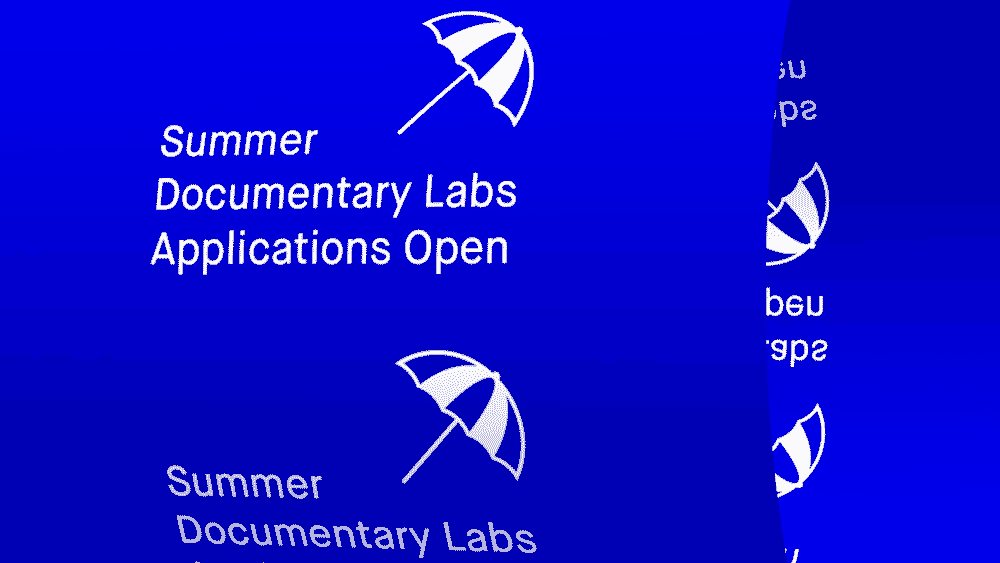Lion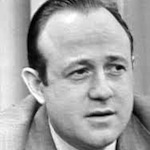 el Rogosin (1924-2000) committed his career to addressing some of the most pressing issues of mid-twentieth century politics. Rogosin’s first major release was the Oscar-nominated On The Bowery (1956), a depiction of unemployment and homelessness on Manhattan’s skid row heavily influenced by Robert Flaherty and Italian Neorealism. He followed up in 1958 with Come Back Africa, a landmark anti-apartheid film shot surreptitiously on location in Johannesburg. During the filming of Good Times, Wonderful Times, Rogosin became a leading voice in European protests against the Vietnam War. Rogosin’s later films—a trio of black liberation films shot for European television and a film on the Arab-Israel conflict from 1974—found limited audiences in the United States, and he spend the remainder of the decade fighting for greater diversity in American commercial broadcasting. He was also a founding member of the New American Cinema Group and ran the influential independent Bleecker Street Cinema from 1960-1974.
el Rogosin (1924-2000) committed his career to addressing some of the most pressing issues of mid-twentieth century politics. Rogosin’s first major release was the Oscar-nominated On The Bowery (1956), a depiction of unemployment and homelessness on Manhattan’s skid row heavily influenced by Robert Flaherty and Italian Neorealism. He followed up in 1958 with Come Back Africa, a landmark anti-apartheid film shot surreptitiously on location in Johannesburg. During the filming of Good Times, Wonderful Times, Rogosin became a leading voice in European protests against the Vietnam War. Rogosin’s later films—a trio of black liberation films shot for European television and a film on the Arab-Israel conflict from 1974—found limited audiences in the United States, and he spend the remainder of the decade fighting for greater diversity in American commercial broadcasting. He was also a founding member of the New American Cinema Group and ran the influential independent Bleecker Street Cinema from 1960-1974.
Introduced by:
 Tanya Goldman is a doctoral student in Cinema Studies at New York University. Her research focuses on mid-twentieth century nonfiction film and its history as a political discourse and practice. Her work and reviews have appeared in Feminist Media Histories, Film Quarterly, Jump Cut, and Senses of Cinema, and she has served as a member of the Peabody Awards nominating committee for documentary television programming.
Tanya Goldman is a doctoral student in Cinema Studies at New York University. Her research focuses on mid-twentieth century nonfiction film and its history as a political discourse and practice. Her work and reviews have appeared in Feminist Media Histories, Film Quarterly, Jump Cut, and Senses of Cinema, and she has served as a member of the Peabody Awards nominating committee for documentary television programming.
About the panelists:
Matt Peterson is a documentary artist from New York who has recently returned from Rojava. He made a film on the Tunisian insurrection called Scenes from a Revolt Sustained, and is currently working with Malek Rasamny on The Native and the Refugee, a multi-media project connecting the American Indian reservation with the Palestinian refugee camp. He is part of Woodbine, a commune in Ridgewood.
David Fresko is a Visiting Assistant Professor of Culture and Media at Eugene Lang College, the New School. He recently completed a Ph.D. in the Department of Art & Art History at Stanford University with a dissertation entitled “Montage—Praxis—Politics: Radical French and American Film of the 1960s and 1970s,” which shows how filmmakers in France and the United States utilized the technique of montage to galvanize solidarity with political movements at home and abroad, above all those across the decolonizing world. His writing has appeared in animation: an interdisciplinary journal, InVisible Culture, and the volume: The Global Sixties in Sound and Vision: Media, Counterculture, and Revolt. Prior to joining academia he worked as a documentary film editor and at the legendary Mondo Kim’s on St. Mark’s Place.
About the co-presenters:
Milestone Films is an award-winning independent film distribution company founded in 1990 by Dennis Doros and Amy Heller known for releasing classic cinema masterpieces, groundbreaking documentaries, and American independent features. Thanks to the company’s work in rediscovering and releasing important films including Charles Burnett’s Killer of Sheep, Kent Mackenzie’s The Exiles, Lionel Rogosin’s On the Bowery, Mikhail Kalatozov’s I Am Cuba, the Mariposa Film Group’s Word is Out, and Shirley Clarke’s The Connection, Milestone has long occupied a position as one of the country’s most influential independent distributors. For more information: http://www.milestonefilms.com
While narrowly defined as a motion picture abandoned by its owner or caretaker, the Orphan Film Symposium embraces a broader definition of this new rubric in film preservation to constitute all manner of films outside the commercial mainstream including: independent documentaries, experimental pieces, stock footage, found footage, public domain materials, home movies, amateur materials and beyond. “Orphans”—as its biennial event has affectionately become known among its attendees—brings together scholars, artists, archivists, collectors, curators, conservators and enthusiasts who recognize the Orphic value of these neglected aspects of our culture. The 10th Annual Orphan Films Symposium will take place at the Library of Congress’ Packard Campus for Audio-Visual Conservation in Culpeper, Virginia in April 2016. For more information: http://www.nyu.edu/orphanfilm/
Based in Gowanus, Interference Archive is an all-volunteer organization committed to exploring the relationship between cultural production and social movements. This work manifests in an closed stacks archival collection, publications, a study center, and public programs including exhibitions, workshops, talks, and film screenings, all of which encourage critical and creative engagement with the rich history of social movements. The archive contains many kinds of objects that are created as part of social movements by the participants themselves: posters, flyers, publications, photographs, books, T-shirts and buttons, moving images, audio recordings, and other materials. Through programming, Interference uses these cultural ephemera to animate histories of people mobilizing for social transformation, preserving and honoring histories and material culture that is often marginalized in mainstream institutions. Their current exhibition “Our Comics, Ourselves: Identity, Expression, and Representation” is running through April 17, 2016. For more information: http://interferencearchive.org/
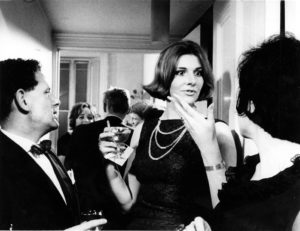
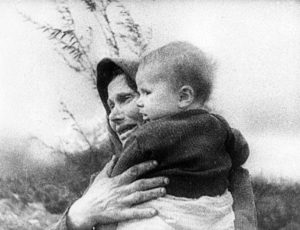


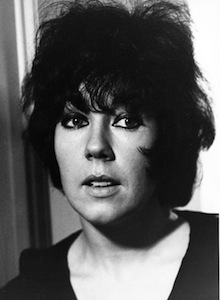
 el Rogosin (1924-2000) committed his career to addressing some of the most pressing issues of mid-twentieth century politics. Rogosin’s first major release was the Oscar-nominated On The Bowery (1956), a depiction of unemployment and homelessness on Manhattan’s skid row heavily influenced by Robert Flaherty and Italian Neorealism. He followed up in 1958 with Come Back Africa, a landmark anti-apartheid film shot surreptitiously on location in Johannesburg. During the filming of Good Times, Wonderful Times, Rogosin became a leading voice in European protests against the Vietnam War. Rogosin’s later films—a trio of black liberation films shot for European television and a film on the Arab-Israel conflict from 1974—found limited audiences in the United States, and he spend the remainder of the decade fighting for greater diversity in American commercial broadcasting. He was also a founding member of the New American Cinema Group and ran the influential independent Bleecker Street Cinema from 1960-1974.
el Rogosin (1924-2000) committed his career to addressing some of the most pressing issues of mid-twentieth century politics. Rogosin’s first major release was the Oscar-nominated On The Bowery (1956), a depiction of unemployment and homelessness on Manhattan’s skid row heavily influenced by Robert Flaherty and Italian Neorealism. He followed up in 1958 with Come Back Africa, a landmark anti-apartheid film shot surreptitiously on location in Johannesburg. During the filming of Good Times, Wonderful Times, Rogosin became a leading voice in European protests against the Vietnam War. Rogosin’s later films—a trio of black liberation films shot for European television and a film on the Arab-Israel conflict from 1974—found limited audiences in the United States, and he spend the remainder of the decade fighting for greater diversity in American commercial broadcasting. He was also a founding member of the New American Cinema Group and ran the influential independent Bleecker Street Cinema from 1960-1974. Tanya Goldman is a doctoral student in Cinema Studies at New York University. Her research focuses on mid-twentieth century nonfiction film and its history as a political discourse and practice. Her work and reviews have appeared in Feminist Media Histories, Film Quarterly, Jump Cut, and Senses of Cinema, and she has served as a member of the Peabody Awards nominating committee for documentary television programming.
Tanya Goldman is a doctoral student in Cinema Studies at New York University. Her research focuses on mid-twentieth century nonfiction film and its history as a political discourse and practice. Her work and reviews have appeared in Feminist Media Histories, Film Quarterly, Jump Cut, and Senses of Cinema, and she has served as a member of the Peabody Awards nominating committee for documentary television programming.



